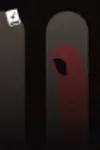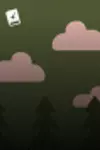
Ryan
Contains spoilers
This was a very ambitious novella. It tries to explore UBI and the arguments around it, while also trying to support multiple narratives and create an interesting four-act structure. I'm not sure it succeeds in any of its goals. I think I would have enjoyed it more if it had been either a full-length novel (to better explore all the perspectives contained within), or if it focused on the stronger narratives (Hannah and Janelle's, specifically).
This is an absolute must-read for anyone interested in grunge or music in the early 90s. It's full of interviews and stories from your favourite bands, bands you haven't thought about in 20 years, and ones you probably haven't even heard of.
Beyond that, it's also a fascinating look at the perils of fame and success, and the challenges associated with having your wildest dreams come true. We see how that can absolutely destroy lives, estrange friendships, but also give people a platform to speak to the world.
This was a really interesting collection. The Dominion War was such an important part of Deep Space 9, but we really only got to see one front line of it. This anthology broadens our perspective to show us what was happening in other parts of the galaxy during that conflict, and in doing so really helps us to understand the size and scope of it.
I gave this book a read after repeatedly seeing it listed as one of the “greatest science fiction stories of all time” in several different places. Quite frankly, I wanted to see what all the fuss was about.
Overall, it's a good enough read. I can see why it's considered an “important” book, and why it would have caused such a splash when it was released, what with its themes of nuclear holocaust and the conflict between Church and State. And, while those conflicts are just as important today as they were then, the book feels somewhat ... dated, nonetheless.
Anyways, the plot in a nutshell: we are given three interconnected short stories, all taking place in the same post-apocalyptic future. Through them, we see how humanity manages to bring itself up out of the ashes, and into the next nuclear holocaust centuries later. The idea of the cyclical nature of time has never been more depressing.
I decided to join my library's book club this year, and this was our first read of the year.
It was an alright read - I loved a lot of the characters, especially Arthur. I thought the perspective of this story was pretty interesting as well. The themes and setting of this book are ones that will be familiar to a lot of YA readers - you have a group of misfits in a magical school setting, and this theme of finding yourself and standing up for your beliefs in a vaguely dystopian setting. All that seems kind of familiar. However, what was unique was seeing that from the perspective of Linus, a middle-aged man, rather than from a precocious teen. That changes how we experience the story in a big way, I think.
One thing that I wish the story did better was to give us a more well-rounded world - the world beyond Marsyas felt very underdeveloped and vaguely sketched out. I think it would have made the story stronger to have a greater sense of just how different the world is from our own.
This was such an incredibly powerful book. Butler presents us with a slow sort of apocalypse - there is no singular moment that changes the world, but rather just a gradual descent where everything falls apart. Reading this at the tail end of 2022, it feels disturbingly prescient - the issues of global warming, police brutality, a housing crisis, and food insecurity were all issues that existed in 1993, but they weren't quite as front-of-mind as they are today.
Of course, the powers of prediction isn't the only way to value science fiction, and that's not all that Butler offers here. What makes this novel such an important read is that it lights a candle in the darkness - it shows us, through Lauren and her burgeoning faith, that we will survive all this. That we can have hope and rebuild. That's what makes this such a special read.
Avatar is essentially the pilot episode for the new, post-TV series version of DS9, and as a pilot it works really well. The new additions to the cast are all interesting, a new status quo is established for the station, and drama abounds. Ro and Kira's relationship seems like it'll be really interesting, as well as the new direction for Ezri.
I'm excited to see where things build from here!
This was a really exciting Cold War alt-history thriller set at the end of the Apollo era. Hadfield has a fairly unique perspective on the details of being in space, which adds a nice degree of reality to those parts of the story. Beyond that, he knows how to spin a good yarn and keeps the story moving at a fast pace.

















































